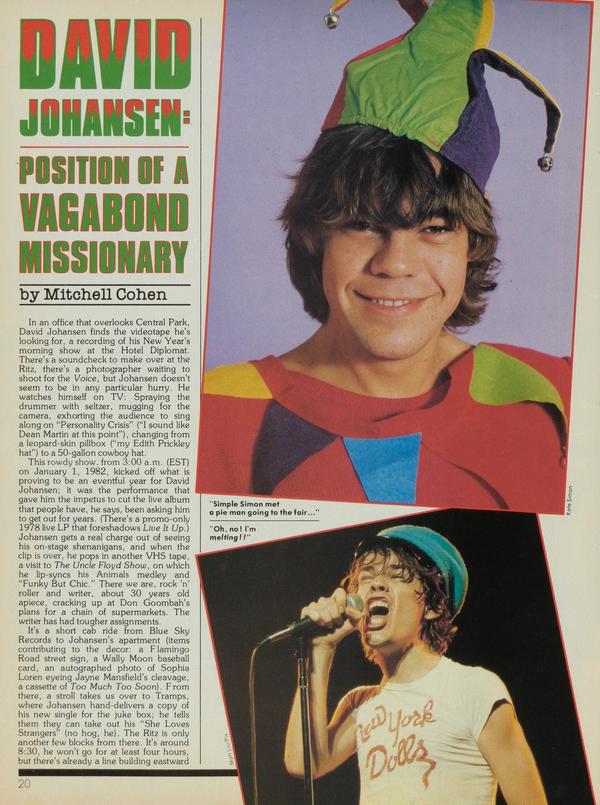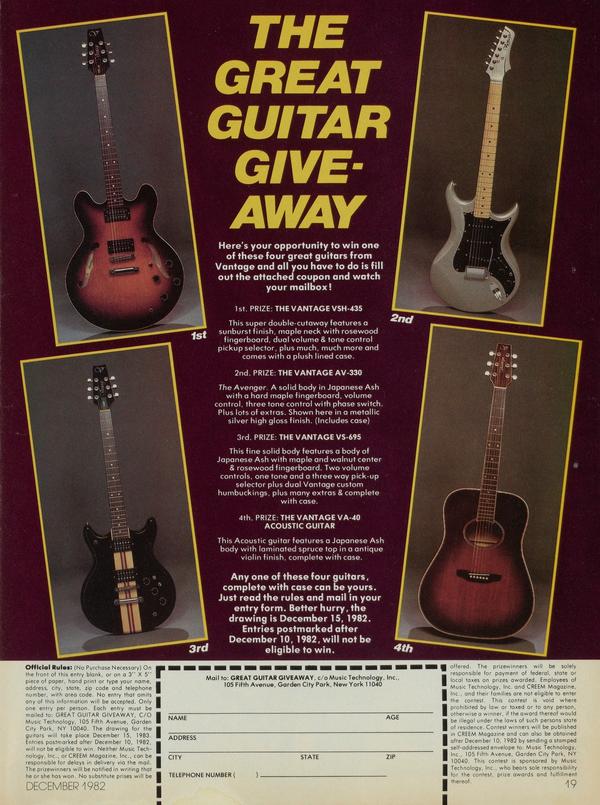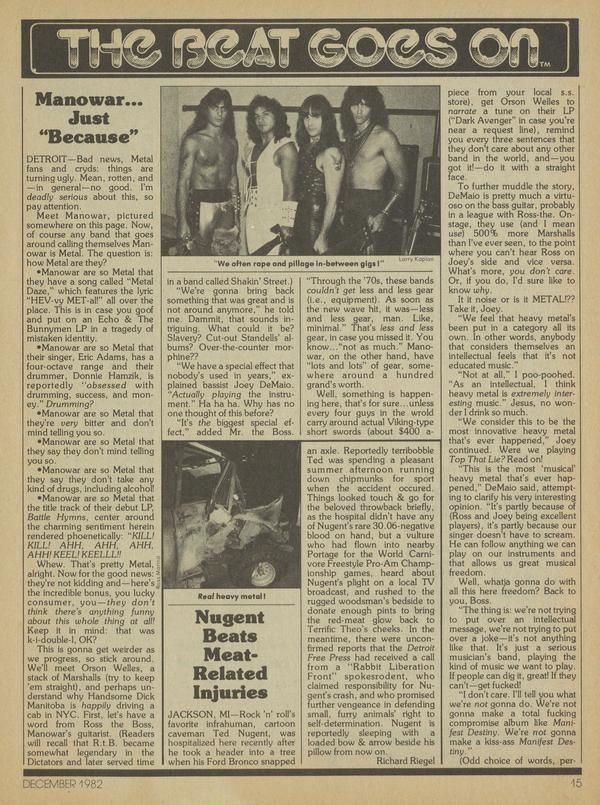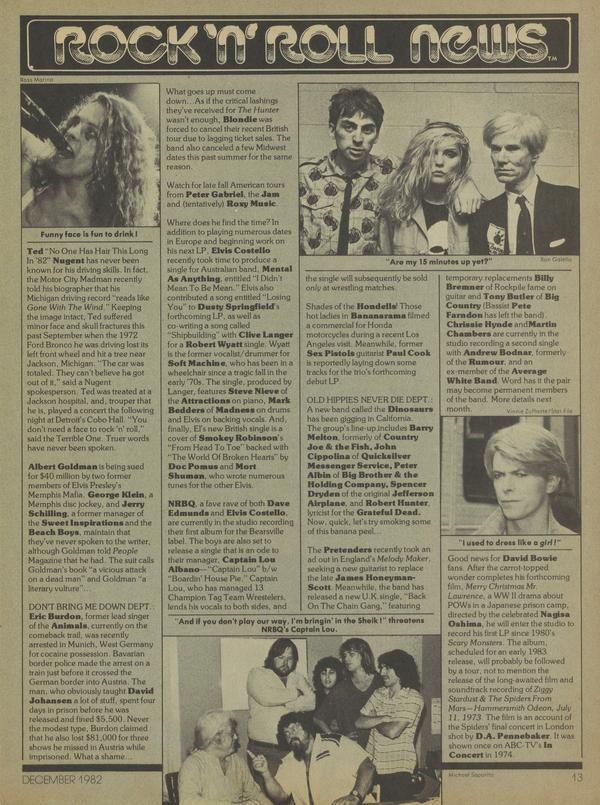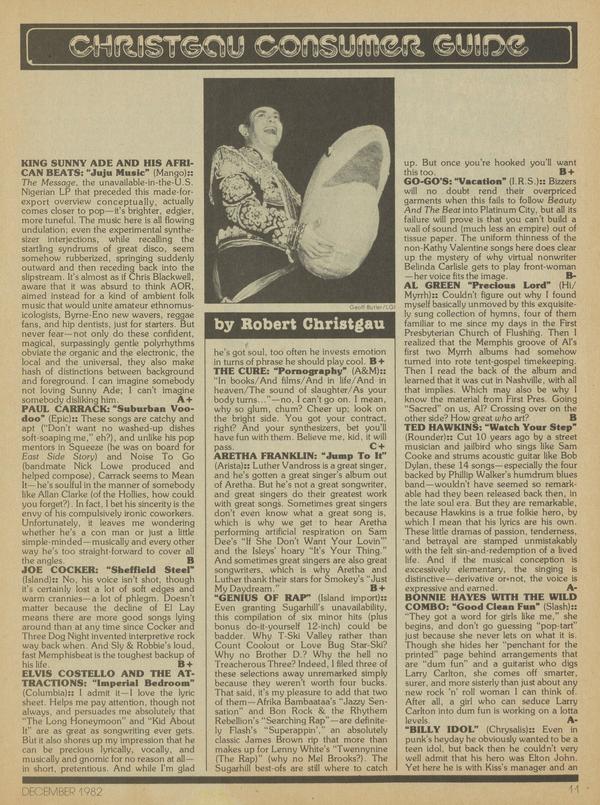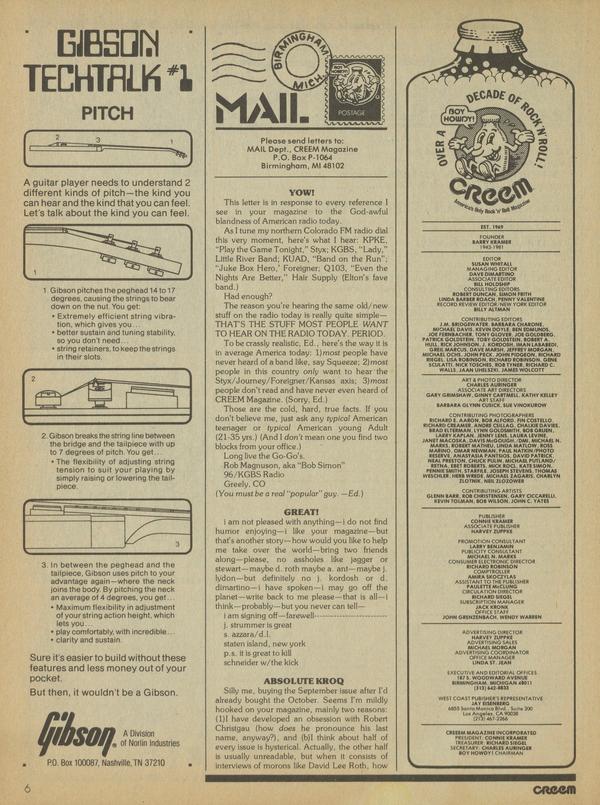Rock-a-Rama
ROCK-A-RAMA
This month's Rock-a-Ramas were written by Richard C. Walls, Richard Meltzer, Michael Davis, and Billy Altman.
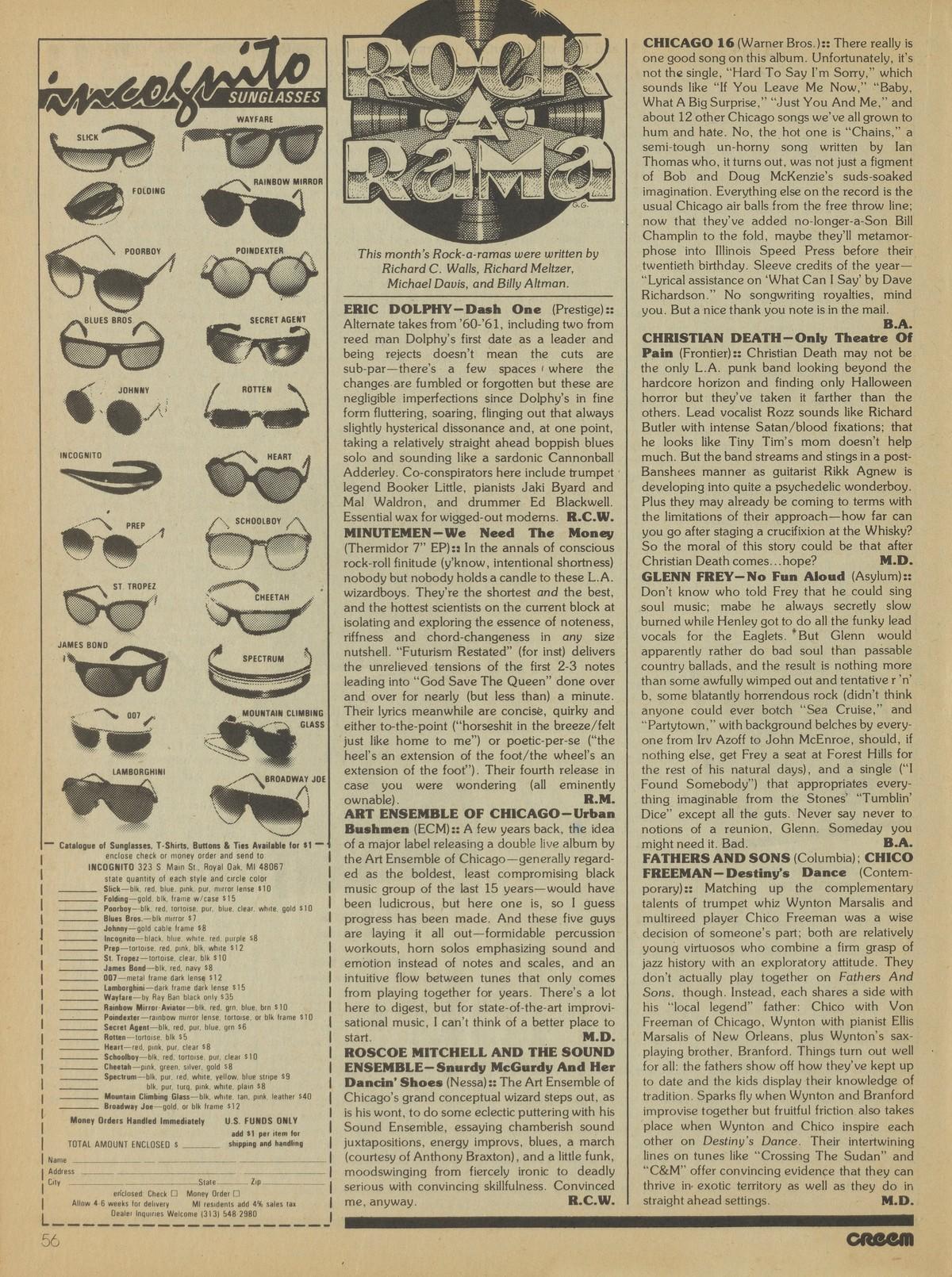
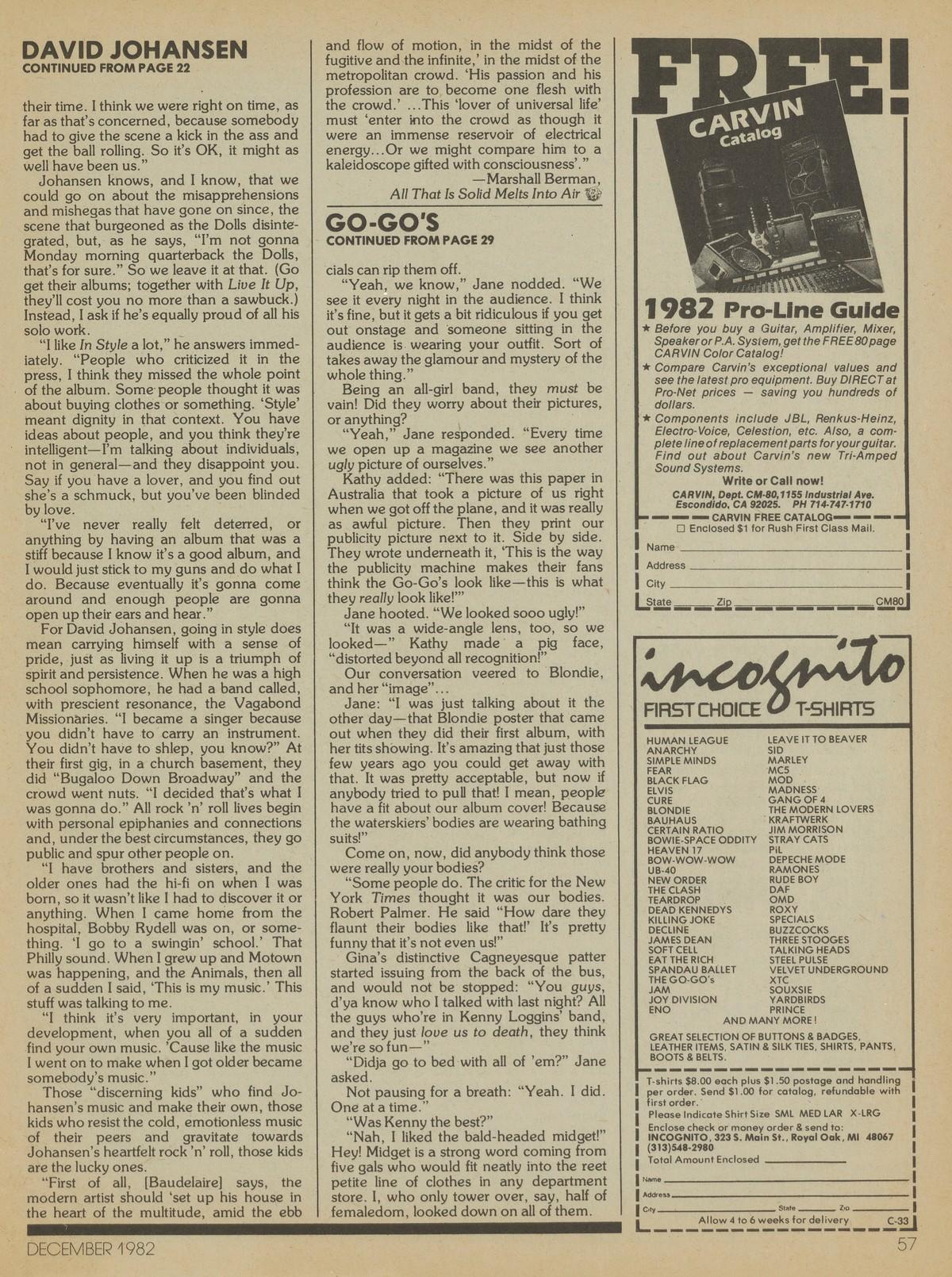
ERIC DOLPHY—Dash One (Prestige):: Alternate takes from '60-'61, including two from reed man Dolphy's first date as a leader and being rejects doesn't mean the cuts are sub-par—there's a few spaces where the changes are fumbled or forgotten but these are negligible imperfections since Dolphy's in fine form fluttering, soaring, flinging out that always slightly hysterical dissonance and, at one point, taking a relatively straight ahead boppish blues solo and sounding like a sardonic Cannonball Adderley. Co-conspirators here include trumpet legend Booker Little, pianists Jaki Byard and Mai Waldron, and drummer Ed Blackwell. Essential wax for wigged-out modems. R.C.W. MI NUT EM EN—We Need The Money (Thermidor 7" EP):: In the annals of conscious rock-roll finitude (y'know, intentional shortness) nobody but nobody holds a candle to these L. A. wizardboys. They're the shortest and the best, and the hottest scientists on the current block at isolating and exploring the essence of noteness, riffness and chord-changeness in any size nutshell. "Futurism Restated" (for inst) delivers the unrelieved tensions of the first 2-3 notes leading into "God Save The Queen" done over and over for nearly (but less than) a minute. Their lyrics meanwhile are concisfe, quirky and either to-the-point ("horseshit in the breeze/felt just like home to me") or poetic-per-se ("the heel's an extension of the foot/the wheel's an extension of the foot"). Their fourth release in case you were wondering (all eminently ownable). R.M.
ART ENSEMBLE OF CHICAGO-Urban Bushmen (ECM):: A few years back, the idea of a major label releasing a double live album by the Art Ensemble of Chicago—generally regarded as the boldest, least compromising black music group of the last 15 years—would have been ludicrous, but here one is, so I guess progress has been made. And these five guys are laying it all out—formidable percussion workouts, horn solos emphasizing sound and emotion instead of notes and scales, and an intuitive flow between tunes that only comes from playing together for years. There's a lot here to digest, but for state-of-the-art improvisational music, 1 can't think of a better place to start. M.D.


